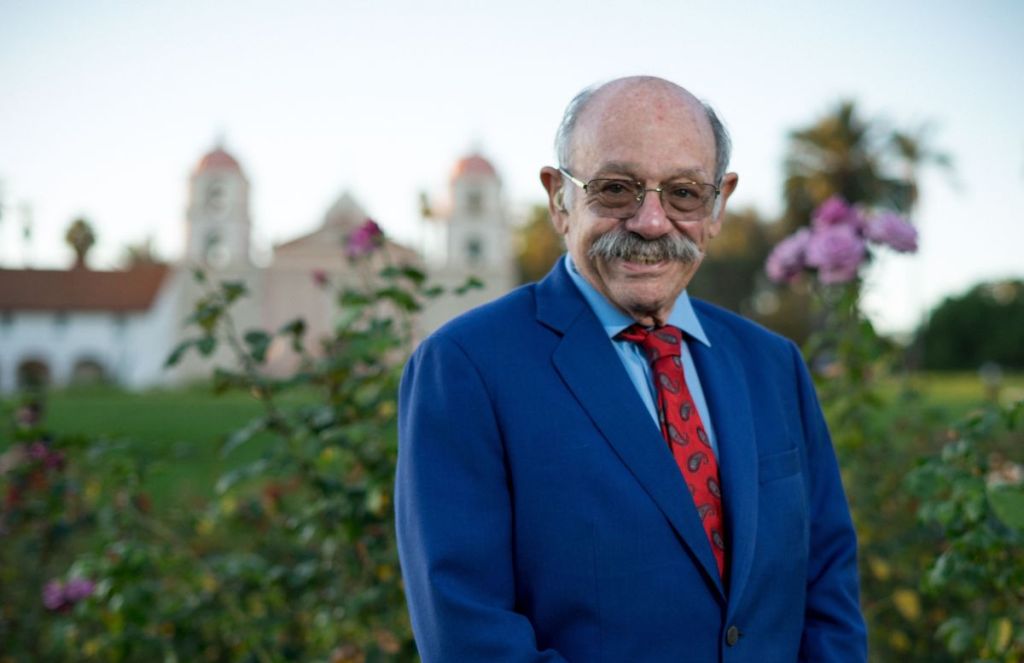For most of my adult life, I’ve been among the minority of medical professionals who claimed cannabis had a healthful and therapeutic use for our society. Most of my generation’s health professionals disagreed; some demonized the plant, and some believed outrageous propaganda and misinformation. But over the last 20 years, at least 100 South Coast physicians have referred patients to me for medical cannabis assessment and education. Thank you.
Today, medical cannabis has been legalized throughout the world. We cannabinologists deserve a victory lap for helping dispel many cannabis myths.
We live in a scientific age, and the therapeutic effects of the plant have been tested. They show why cannabis has been an accepted medicine for more than 4,000 years. It’s only relatively recently that petrochemical companies, religious zealots, and “the establishment” created myths to discourage the public from even trying cannabis.
Myth #1: Cannabis medicine is brand new. No, cannabis was not discovered in the ‘60s by hippies or in the ‘20s by jazz musicians. Cannabis has been a known medicine for millennia. It was the third most common ingredient in patent medicines and prescriptions at the turn of 19th century. In the 1920s, American doctors wrote two million to three million prescriptions containing cannabis per year. Significantly, in 1937, the American Medical Association testified against the Marijuana Tax Act, saying, “AMA knows of no dangers from the medical use of cannabis.”
Myth #2: Cannabis is not safe. Cannabis is very safe. Every major governmental study ever run has recommended legalization. In 1988, the Drug Enforcement Agency’s Chief Administrative Law Judge Francis Young, in his “Finding of Fact,” said cannabis was “one of the safest therapeutic agents known to man.”
Myth #3: The bogus claim of brain damage. Cannabis does not cause brain damage. It is neuroprotective. Numerous animal studies, especially those by Dr. Raphael Mechoulam and his lab at Hebrew University, demonstrate that the presence of cannabis in brain cells limits brain damage from stroke and traumatic brain injury.
This myth likely resulted from some incredibly bad 1970s junk science. In one study, a researcher exposed monkeys to cannabis smoke in a small area and found no brain damage. The researcher then fitted the monkeys with gas masks and pumped in cannabis smoke. This dramatically limited the amount of oxygen available to the monkeys’ brains, which, of course, caused brain damage. This spurious research spread the myth that smoking cannabis led to irrevocable brain damage.
Myth #4: Cannabis is harmful to the fetus. This is not even close to being true. A doctoral thesis by Ciara Torres Vargas, PhD, Columbia University, reviewed more than 30 studies of maternal cannabis use, which found the “totality of evidence suggests prenatal exposure to cannabis does not cause cognitive impairment.” A study done by Dr. Melanie Dreher, former Dean of the School of Nursing at Rush Medical School, documented that such children did better in school and reached their developmental landmarks sooner than children of non-smokers. Didn’t matter; anti-cannabis zealots continued to spread the lie that “pot” would hurt a mother’s baby.
Myth #5: IQ. One of the most common arguments is that cannabis makes you stupid and lowers your IQ. Not true. Many variables affect IQ, among them home environment, illness, accident, diet, intellectual situation, use of alcohol, tobacco, and a host of other factors. One particularly interesting study was done by UCLA and University of Minnesota with several pairs of twins; one of whom used cannabis while the other did not — both ended up with the same IQ.
Myth #6: Cannabis causes cancer. This is one of the biggest false myths. We have known from both human and animal studies, starting with a 1974 study at the Medical College of Virginia, that cannabis kills cancer cells and drives many different cancers into remission.
Myth #7: Cannabis is a gateway drug. No, actually, cannabis is an exit drug and is an effective antidote to the opioid epidemic. Several states have approved cannabis for treatment of opiate use disorder, and numerous studies show its effectiveness. My patients who are alcoholic, one an AA member for more 30 years, have used cannabis to stay sober.
For most of my professional medical life, I have looked at cannabis from a historical and medical point of view. My father was a pharmacist in a small town in Wisconsin and had attended the University of Minnesota School of Pharmacy. In 1928, when he was a freshman, he told me, they had an assignment to make tincture of cannabis. The irony was that he had to be very careful because the alcohol was illegal.
I was told that my professional standing would be damaged if I continued to tell the truth about cannabis. This has been true of almost all doctors who have tried to use science to conquer prejudice. They have all used reason to overcome ignorance and fear.
Today, we know the scientific reality about the health and therapeutic benefits of the plant. This new appreciation of the benefits of cannabis is widely understood by readers of the Independent. This acceptance gives me great pleasure and satisfaction. It’s nice after all these years to join so many of my medical and scientific colleges to say, “I told you so.”

